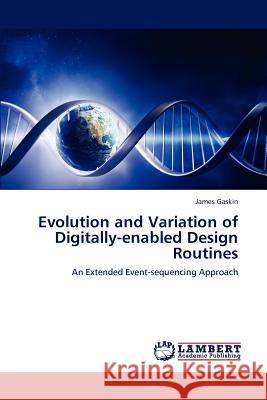Evolution and Variation of Digitally-enabled Design Routines » książka
Evolution and Variation of Digitally-enabled Design Routines
ISBN-13: 9783659189234 / Angielski / Miękka / 2012 / 312 str.
Digitally-enabled generative organizational processes (such as product design and development) change frequently and vary greatly within and between companies, and over time, making them difficult to understand and manage. These kinds of generative processes can be viewed as sets of organizational routines afforded by technology, which in this thesis are commonly labeled as "sociomaterial routines." To further complicate sense-making of such processes for scholars and practitioners, digital innovations continue to alter the form of sociomaterial routines through the simultaneous consolidation of tasks and expansion of capabilities, and thus provide means to both increase and decrease complexity and variety in organizations. This complex dynamic of sociomaterial routines offers a tantalizing, yet heretofore elusive, opportunity to explore the effects digitalization and process structure have on process variety.
Digitally-enabled generative organizational processes (such as product design and development) change frequently and vary greatly within and between companies, and over time, making them difficult to understand and manage. These kinds of generative processes can be viewed as sets of organizational routines afforded by technology, which in this thesis are commonly labeled as "sociomaterial routines". To further complicate sense-making of such processes for scholars and practitioners, digital innovations continue to alter the form of sociomaterial routines through the simultaneous consolidation of tasks and expansion of capabilities, and thus provide means to both increase and decrease complexity and variety in organizations. This complex dynamic of sociomaterial routines offers a tantalizing, yet heretofore elusive, opportunity to explore the effects digitalization and process structure have on process variety.











